Geology: An Overview
Geology is the study of the Earth, its structure, composition, and the processes that have shaped it over time. It encompasses a wide range of topics including the study of rocks, minerals, earthquakes, volcanoes, and the history of the Earth itself.
Key Concepts in Geology
- Rock Types: Geologists classify rocks into three main types: igneous, sedimentary, and metamorphic. Each type has unique characteristics and is formed through different processes.
- Plate Tectonics: The theory of plate tectonics explains the movement of the Earth's lithosphere and the formation of features such as mountains, earthquakes, and volcanoes.
- Minerals: Geology involves the study of minerals, which are the building blocks of rocks. Understanding their properties and formations is essential in geology.
- Geological Time Scale: Geologists use the geological time scale to understand the history of the Earth, including major events such as mass extinctions and the evolution of life.
- Natural Resources: Geology plays a crucial role in the exploration and extraction of natural resources such as oil, gas, coal, and metals.
Studying Geology
To study geology effectively, it's important to engage in the following activities:
- Fieldwork: Fieldwork is essential for geologists to observe and analyze rock formations, fossils, and geological features in their natural settings.
- Laboratory Work: Geological analysis often involves the use of laboratory techniques to study the physical and chemical properties of rocks and minerals.
- Map Interpretation: Geologists use maps to understand the distribution of rocks, faults, and other geological features, making map interpretation a crucial skill.
- Data Analysis: Geologists analyze various types of data, including seismic readings, geochemical analyses, and remote sensing data, to understand Earth processes.
- Research and Communication: Geologists conduct research and communicate their findings through scientific papers, presentations, and educational outreach.
Geology in Everyday Life
Geology has numerous practical applications in everyday life, including:
- Construction: Understanding the properties of rocks and soils is essential for building structures that can withstand geological hazards.
- Resource Management: Geologists play a key role in the sustainable management of natural resources and environmental protection.
- Natural Hazard Assessment: Geologists assess and mitigate the risks from natural hazards such as earthquakes, landslides, and volcanic eruptions.
- Environmental Studies: Geologists contribute to understanding and addressing environmental issues such as climate change, pollution, and habitat restoration.
- Energy Exploration: Geology is critical for the exploration and production of energy resources, including fossil fuels, geothermal energy, and renewable energy sources.
Key Terms in Geology
It's important to be familiar with the following key terms in geology:
- Igneous: Rock formed from the cooling and solidification of magma or lava.
- Sedimentary: Rock formed from the accumulation and cementation of sediments.
- Metamorphic: Rock formed through the alteration of existing rock by heat, pressure, or chemical processes.
- Volcanism: The process of volcanic activity, including eruptions and the formation of volcanic landforms.
- Seismology: The study of earthquakes and the propagation of seismic waves through the Earth.
- Geologic Time Scale: A timeline of the Earth's history, divided into eons, eras, periods, and epochs.
- Plate Boundary: The region where tectonic plates meet and interact, leading to geological phenomena such as earthquakes and mountain building.
Study Tips for Geology
To excel in geology, consider the following study tips:
- Active Learning: Engage with the material through hands-on activities, field trips, and interactive learning experiences.
- Visual Aids: Use diagrams, maps, and models to visualize geological processes and concepts.
- Practice Geologic Mapping: Develop your skills in interpreting and creating geological maps to understand spatial relationships.
- Review Case Studies: Explore real-world examples of geological phenomena and their impacts on society and the environment.
- Stay Updated: Keep abreast of current research and developments in the field of geology through scientific journals and news sources.
[Geology] Related Worksheets and Study Guides:
.◂Science Worksheets and Study Guides Eighth Grade. Plate tectonics
Study Guide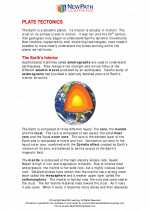 Plate tectonics
Plate tectonics  Activity Lesson
Activity Lesson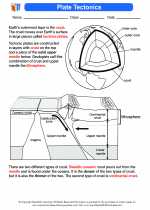 Plate Tectonics
Plate Tectonics  Worksheet/Answer key
Worksheet/Answer key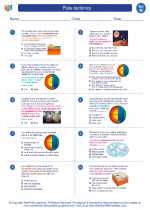 Plate tectonics
Plate tectonics  Worksheet/Answer key
Worksheet/Answer key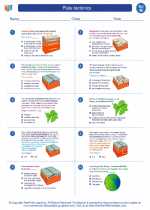 Plate tectonics
Plate tectonics  Worksheet/Answer key
Worksheet/Answer key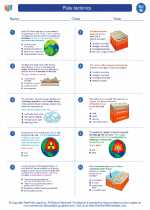 Plate tectonics
Plate tectonics  Worksheet/Answer key
Worksheet/Answer key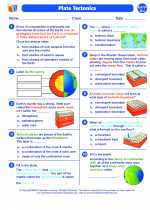 Plate tectonics
Plate tectonics  Vocabulary/Answer key
Vocabulary/Answer key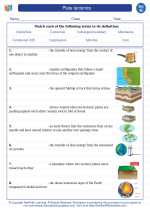 Plate tectonics
Plate tectonics  Vocabulary/Answer key
Vocabulary/Answer key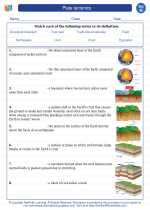 Plate tectonics
Plate tectonics  Vocabulary/Answer key
Vocabulary/Answer key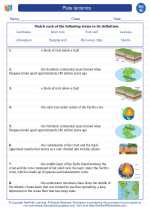 Plate tectonics
Plate tectonics  Vocabulary/Answer key
Vocabulary/Answer key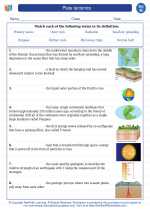 Plate tectonics
Plate tectonics  Vocabulary/Answer key
Vocabulary/Answer key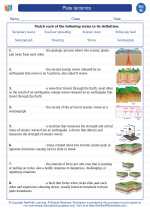 Plate tectonics
Plate tectonics  Vocabulary/Answer key
Vocabulary/Answer key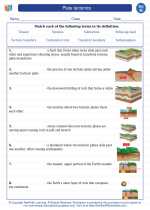 Plate tectonics
Plate tectonics  Vocabulary/Answer key
Vocabulary/Answer key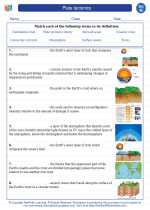 Plate tectonics
Plate tectonics 

 Activity Lesson
Activity Lesson
 Worksheet/Answer key
Worksheet/Answer key
 Worksheet/Answer key
Worksheet/Answer key
 Worksheet/Answer key
Worksheet/Answer key
 Worksheet/Answer key
Worksheet/Answer key
 Vocabulary/Answer key
Vocabulary/Answer key
 Vocabulary/Answer key
Vocabulary/Answer key
 Vocabulary/Answer key
Vocabulary/Answer key
 Vocabulary/Answer key
Vocabulary/Answer key
 Vocabulary/Answer key
Vocabulary/Answer key
 Vocabulary/Answer key
Vocabulary/Answer key
 Vocabulary/Answer key
Vocabulary/Answer key
